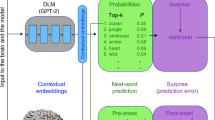Abstract
I DO not think exception can fairly be taken to the adoption into a living language of any word that (1) contributes to convenient expression and (2) violates no rule or custom in etymology. Contemporary speech has this advantage over a dead language as a vehicle of thought, that it can be adapted to changing circumstance, whether that be effected by modifying the meaning of old vocables or by the addition of new ones. The invention of printing did much to arrest colloquial change and to standardise speech, but a useful measure of elasticity still prevails. Examples in point are the verbs “to burke” and “to boycott,” which it would be very inconvenient to discard.
This is a preview of subscription content, access via your institution
Access options
Subscribe to this journal
Receive 51 print issues and online access
$199.00 per year
only $3.90 per issue
Buy this article
- Purchase on SpringerLink
- Instant access to the full article PDF.
USD 39.95
Prices may be subject to local taxes which are calculated during checkout
Similar content being viewed by others
Author information
Authors and Affiliations
Rights and permissions
About this article
Cite this article
MAXWELL, H. The Word "Scientist" or its Substitute. Nature 115, 50 (1925). https://doi.org/10.1038/115050a0
Issue date:
DOI: https://doi.org/10.1038/115050a0



